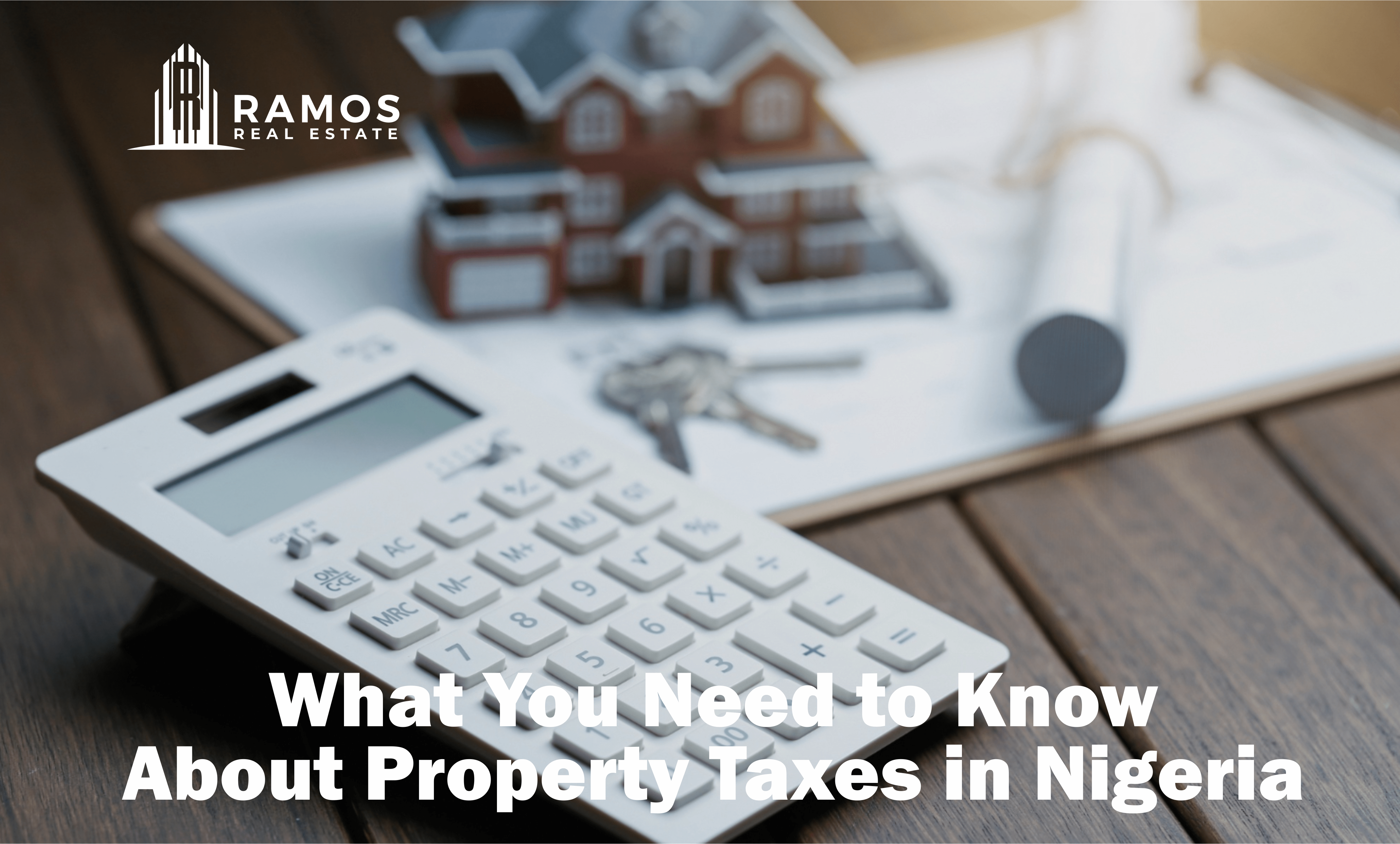Property taxes are an essential aspect of owning real estate, and understanding them is crucial for any property owner or potential buyer in Nigeria. Whether you are purchasing a home, investing in commercial real estate, or working with agents like Ramos Real Estate, knowing the ins and outs of property taxes will help you make informed decisions. Here’s a comprehensive guide on everything you need to know about property taxes in Nigeria.
What Are Property Taxes?
Property taxes are levies imposed by the government on property owners based on the value of their properties. These taxes are typically used to fund local services such as education, infrastructure, and public safety. In Nigeria, property taxes are an important source of revenue for local governments.
Types of Property Taxes in Nigeria
- Tenement Rates Tenement rates are taxes levied on buildings and structures used for residential, commercial, or industrial purposes. These rates are based on the annual rental value of the property and are collected by local governments. The rate varies depending on the location and type of property.
- Land Use Charge (LUC) Introduced to simplify property taxation, the Land Use Charge consolidates ground rent, tenement rates, and neighborhood improvement levies into a single charge. It is applicable in some states, such as Lagos. The LUC is calculated based on the market value of the property and the annual charge rate determined by the state government.
- Capital Gains Tax When you sell a property in Nigeria, you are required to pay a capital gains tax on the profit made from the sale. The current rate is 10% of the gains. This tax applies to both individuals and corporate entities.
How Property Taxes Are Calculated
The calculation of property taxes depends on the type of tax and the specific regulations in your local area. Generally, the formula involves the valuation of the property and the application of the relevant tax rate. For instance, the Land Use Charge is calculated as follows: LUC=Market Value×Annual Charge Rate\text{LUC} = \text{Market Value} \times \text{Annual Charge Rate}LUC=Market Value×Annual Charge Rate
For accurate assessments, local governments or authorized agents conduct property valuations.
Paying Property Taxes
Property taxes are typically paid annually. Property owners receive assessment notices detailing the amount due and the payment deadline. Payments can be made through various channels, including banks, online platforms, and designated government offices.
Consequences of Non-Payment
Failing to pay property taxes can lead to severe consequences, including:
- Penalties and Interest: Late payments attract penalties and interest, increasing the total amount owed.
- Legal Action: The government may take legal action to recover unpaid taxes, which could result in the seizure of the property.
- Sale Restrictions: Properties with outstanding taxes may face restrictions on sales or transfers.
Tips for Managing Property Taxes
- Stay Informed Keep up-to-date with property tax regulations in your area. Laws and rates can change, so regular consultation with real estate agents like those at Ramos Real Estate can provide valuable insights.
- Budget for Taxes Include property taxes in your annual budget to avoid financial strain. Setting aside funds throughout the year can make it easier to meet tax obligations.
- Utilize Professional Services Consider hiring property managers or tax consultants to handle tax assessments and payments. Professionals can ensure accuracy and timely compliance, preventing potential issues.
- Appeal Incorrect Assessments If you believe your property has been overvalued, leading to higher taxes, you have the right to appeal the assessment. Gather evidence, such as market comparisons and property details, to support your case.
Working with Real Estate Agents
Real estate agents, including Ramos Real Estate, can be invaluable allies in navigating property taxes. They offer expertise in property valuation, market trends, and tax regulations, helping you make informed decisions. Whether you’re buying, selling, or managing properties, leveraging their knowledge can streamline the process and ensure compliance.
Conclusion
Understanding property taxes in Nigeria is crucial for any property owner or investor. By staying informed about the types of taxes, how they are calculated, and the payment process, you can manage your obligations effectively. Collaborating with experienced real estate agents like Ramos Real Estate further enhances your ability to handle property taxes, ensuring a smooth and compliant property ownership experience. By following these guidelines, you can navigate the complexities of property taxes with confidence and ease.





